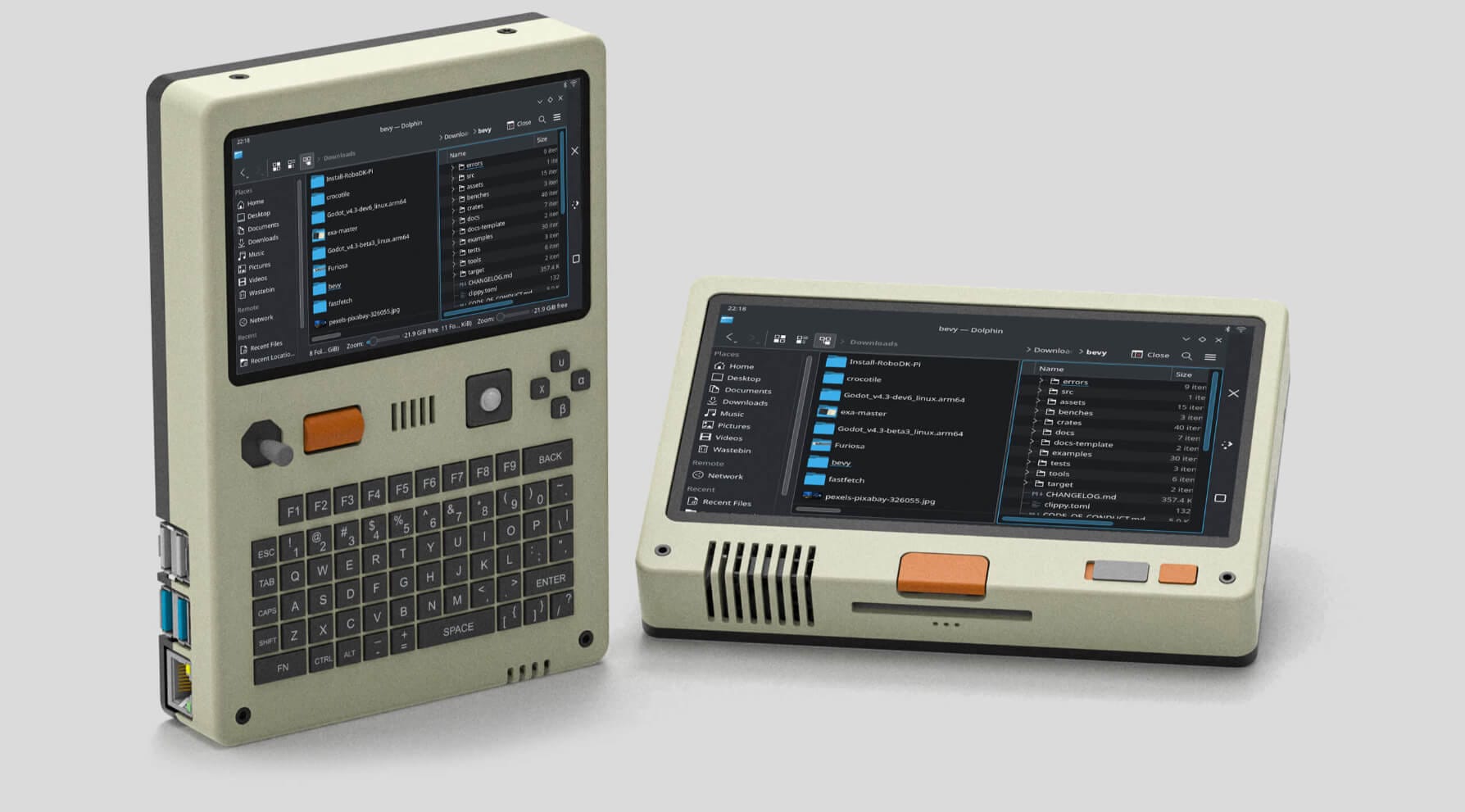
Handheld computers have been growing in popularity lately, with gamers strongly hooked on the portability and convenience of handheld consoles. The future looks bright for such devices, and many around the world recognize that.
Valve is one such company that has been able to capitalize on this with their Steam Deck series of handhelds, with recent leaks suggesting that they are preparing for a Steam Deck VR device.
Now, a small team of enthusiasts has set out to launch two Raspberry Pi 5-based handheld computers that aim to cater to tinkerers, coders, hackers, creatives, and learners.
Pilet 5 & Pilet 7: What To Expect?

Boasting a 7-hour battery life, the Pilet 5 and the Pilet 7 are marketed as portable consoles that are modular in nature, allowing anyone to modify the original design to their liking.
Both of these devices consist of key specs like two 8000 mAh batteries, a 2.4 GHz quad-core 64-bit Arm Cortex-A76 processor, up to 8 GB of LPDDR4x RAM, Wi-Fi 5, Bluetooth 5.0, a microSD card reader, and a PCIe 2.0 x1 interface for add-ons.
There are readily accessible ports like USB-C, USB 2.0, HDMI, Gigabit Ethernet, and a few more. Basically, everything the Raspberry Pi 5 has.
The differentiating factors are things like the display, where the Pilet 5 uses a 5-inch unit and the Pilet 7 uses a 7-inch touchscreen. The form factor is also different, with the Pilet 5 having a retro-console-like enclosure with an integrated keyboard, joystick, and action buttons.
Whereas, the Pilet 7 features a tablet form factor with a retro feel to it, featuring the 7-inch display inside an enclosure with some buttons, an add-on slot for keyboards/game controllers, and what looks like a speaker grill on the bottom-left of the device.
The functionality of both of these can be extended with things like an NVMe SSD, a Hailo-8L AI module, a rear stand, VESA mounts, and active+passive cooling solutions.
The soulscircuit team had previously teased a 4G LTE module that could be used to add networking capabilities to the Pilet handheld computers, but there's no info on that as of now.
If you are eager to learn more, check out its official Pilet 7 demo video. 👇
Pilet 7 official demo.
The demo shows how the touchscreen works on the Pilet 7, with the device running a Linux distribution (Debian most likely) and KDE's Plasma Mobile serving as the user interface.
💰 Pricing and Availability
Currently, Pilet's website mentions that pricing for the Pilet consoles is undecided, but people can expect it to cost around $250. They also add that, once the product development is complete, they intend to open source the designs of the Pilet devices on their GitHub repo.
Meanwhile, if you want to support the project directly, then you can consider contributing to it on Kickstarter, where the crowdfunding campaign is live.
Via: Liliputing
Suggested Read 📖

- Even the biggest players in the Linux world don't care about desktop Linux users. We do.
- We don't put informational content behind paywall. Your support keeps it open for everyone. Think of it like 'pay it forward'.
- Don't like ads? With the Plus membership, you get an ad-free reading experience.
- When millions of AI-generated content is being published daily, you read and learn from real human Linux users.
- It costs just $2 a month, less than the cost of your favorite burger.
Become a Plus Member today and join over 300 people in supporting our work.











